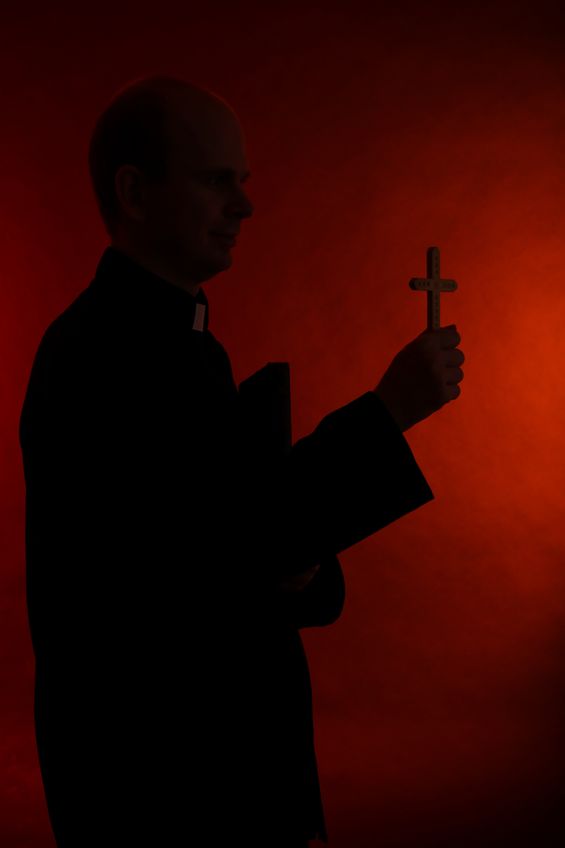 The International Association of Exorcists has issued a Note offering important clarifications about the Ministry of Exorcism in the Church in order to correct erroneous practices being carried out by some priests as well as the faithful.
The International Association of Exorcists has issued a Note offering important clarifications about the Ministry of Exorcism in the Church in order to correct erroneous practices being carried out by some priests as well as the faithful.
According to an article issued by the Association last week, it is intended to help the faithful (clergy, consecrated persons and lay people) to be able to “avoid attitudes and ways that do not correspond to the authentic action of Christ the Lord, the model for any exercise of the ministry of liberation from the extraordinary action of evil.”
This is due to an increasing number of people who go in search of exorcists because they are either in doubt, or convinced, that they are victims of vexation, obsession, possession or diabolical infestation based on the discernment of people who are not trained in these areas.
As the article explains, “the definitive discernment of a real extraordinary demonic action is the responsibility…of those who enjoy the necessary training and act with the mandate of the ecclesiastical authority.”
The article goes on to list ten clarifications to shed light on some situations in this field that are objectionable.
1. Disapproval of improvisation and sensationalism
Inventing and/or exaggerating demonic activity in a soul happens when priests, consecrated persons and lay people who lack adequate training and do not have an episcopal mandate in this area, undertake indiscriminate paths of liberation rather than referring the person to someone who has been appointed by the bishop to handle these matters.
2. Centrality of the Gospel
This error occurs when priests and laity are too focused on the action of the devil rather than on the Gospel and, instead of accompanying the suffering on a journey of faith in Jesus Christ, lead them to believe that liberation depends solely on a compulsive repetition of prayers and blessings. Instead, what should be taught is how to acquire the peace that comes from Christ by living a life of charity, nourished by the Word of God, prayer, frequency of the sacraments, and an authentic devotion to the Mother of God.
3. Negligent discernment
Priests, including some exorcists, as well as the laity, can sometimes fall into the error of relying upon discernment criteria that is foreign to the Catholic faith. These include esoteric and New Age practices such as opening and closing chakras, eliminating negativity, using positive or negative energies, etc., all of which are the fruit of beliefs, superstitions and philosophies contrary to the Catholic religion.
4. Superstitious practices, improper use of res sacrae
“Those who use superstitious procedures must be censured, asking for photos or clothing to identify possible spells, touching certain points on the body of the faithful in order to ‘diagnose the presence of malignant entities’ or to ‘expel negativity,’ or suggesting an improper use of the res sacrae (water, salt, blessed oil, etc.) which some call ‘exorcised’,” the article states.
 “These are erroneous behaviors that feed a superstitious mentality and practice, damage the dignity of the body, the temple of the Holy Spirit, and induce a magical use of blessed objects, depriving them, in fact, of the real meaning of making present the saving presence of Christ.”
“These are erroneous behaviors that feed a superstitious mentality and practice, damage the dignity of the body, the temple of the Holy Spirit, and induce a magical use of blessed objects, depriving them, in fact, of the real meaning of making present the saving presence of Christ.”
5. Participation of inappropriate figures
This error occurs when some priests or pastoral workers collaborate with those who are considered “sensitive” or presumed charismatic, and send the suffering to these people instead of putting them in contact with someone who has an express mandate from the local Ordinary to exercise the Ministry of exorcism.
“Such behavior evades the nature of the ministry entrusted to the exorcist, which requires him to take charge of the suffering of others and not omit personal, regular, scrupulous and, in some cases, burdensome time for discernment necessary to verify the possible extraordinary action of the devil and to accompany those who are truly his victims.”
6. Exclusion of medical and psychological sciences
“The ministry of exorcism, like every sacrament, is at the service of man. Therefore, one cannot exclude a priori the help of psychological and psychiatric sciences, as well as other positive disciplines, which in some cases can help to understand the origin of evils not necessarily of preternatural origin.”
This behavior is not only wrong, the Note warns, “but exposes people to unnecessary risks, neglecting the contribution, in some cases decisive, of modern medical and psychological disciplines.”
7. Reckless and harmful claims
This error occurs when a priest or lay person desires at all costs to proclaim extraordinary demonic action as the cause of suffering, without engaging in the serious discernment that is required.
8. Curses
“Without denying the real existence of the practice of witchcraft, unfortunately more widespread in today’s society than one might think, we condemn the phobic attitude of those who see witchcraft as the necessary origin of all the evils and misfortunes that can befall a person’s life,” the article writes.
“Common sense and experience teach us that, even when an evil may have really originated from a witchcraft, concentrating on identifying it and sentencing people by saying that they are victims of it, is not only useless and irrelevant for the purposes of liberation, but can be harmful to the victim, provoking suspicions about the presumed instigators or authors who have carried out the witchcraft and pouring out feelings of hatred towards them…”
Instead, the attention of the suffering should be placed upon the remedies of grace offered by the Church and on the Christian path to follow.
9. Intergenerational healing (family tree healing)
The use of the practice of intergenerational healing is not to be employed to alleviate people’s suffering because these practices have been found to have no biblical or theological foundation.
This is because, as a recent doctrinal note from the Spanish Episcopal Conference states, “sin is always personal and requires a free decision of the will. The same is true of the punishment for sin. It always involves personal responsibility.” The only sin that is transmitted from generation to generation is original sin.
By telling a person they cannot be freed of their suffering until they have been relieved of the sins of their ancestors can do damage to the person’s faith and cause consequences on an existential level.
10. Banish fear
The exorcist and those who work in this ministry must be free of fear of the devil and be inhabited by the peace of Christ so that he may lead the tormented to this same peace. “The devil uses it to enslave man (cf. Heb 2:14-15), while in the Bible God’s invitation not to be afraid resounds at least 365 times,” the Note states.
“A priest who was afraid of the devil in the exercise of his Ministry or in his daily life could not exercise the Ministry of exorcism without exposing himself to grave dangers for his spiritual life, especially if, instead of cultivating trust and total abandonment of himself into the merciful hands of God, he tries to confront it with more or less superstitious practices.”
In today’s culture, popular entertainment has painted the practice of exorcism as something “dark, disturbing and terrifying,” the Note says.
Nothing could be further from the truth!
“The experience of those who carry out the ministry of exorcism, as well as that of the assistants who collaborate in various functions, confirms that exorcism, contrary to the widespread idea, is imbued with a profound joy: one is an authentic witness of how powerful is the action of the Risen Christ, who illuminates the darkest darkness and frees us from the most terrible sin.”
Those who in the grip of Satan are “the poorest of the poor”, the Note continues, and must therefore be treated with a preferential love. This is why the Church considers the ministry of exorcism to be not only a ministry of liberation, but also of consolation.
“For this reason, recalling the words of St. John of the Cross: ‘In the evening you will be examined in love,’ the exorcist cannot help but be guided by these feelings towards his brothers and sisters who experience this extraordinary form of suffering, so that before them and before the world ‘there may be witness to the presence of Christ the Savior, who has conquered every power hostile to life.’”
© All Rights Reserved, Living His Life Abundantly®/Women of Grace® http://www.womenofgrace.com









